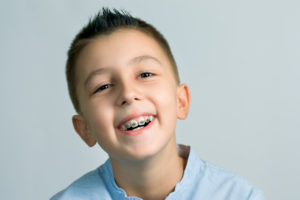 Parents of young children often ask when they should expect their little ones to start losing their baby teeth. Traditional wisdom says by age 4 or 5. However, pinning down an approximate age is difficult. Here are some tips on the topic courtesy of a dentist in Fort Worth.
Parents of young children often ask when they should expect their little ones to start losing their baby teeth. Traditional wisdom says by age 4 or 5. However, pinning down an approximate age is difficult. Here are some tips on the topic courtesy of a dentist in Fort Worth.
“Normal” Is a Tricky Word When it Comes to Kid’s Teeth
Human beings mature at different rates, depending on factors such as genetic markers, gender, and degrees of physical activity. For example, girls often lose their baby teeth at an earlier age than boys. This is due to the fact that females, in general, mature faster than males.
By the same token, kids whose parents lost their teeth at an early age may often, though not always, follow the same pattern. Children with special needs, such as those with Down’s Syndrome, often lose their baby teeth later than others.
Other times, losing baby teeth has more to do with the child’s chosen activities. For example, children who engage in rough-and-tumble sports sometimes lose a tooth earlier than they otherwise might.
Keeping an Eye on Things Is Always Smart
None of this means that parents should ignore their children’s oral health, of course. Here are some general guidelines to follow when charting your child’s dental development:
- Teeth can first start to loosen at age 4. This is especially common with the bottom front teeth.
- Speaking of the bottom front teeth, they’re often the first to go, most likely followed by the top front teeth, also known as the central incisors.
- These are followed by the remaining teeth on the bottom jaw, and finally those that are still on top, also known as the lateral incisors.
- From ages 6 to 8, most children see their rear molars start to emerge. The remaining teeth stay in place longer, up until age 12 in many cases.
- Children who have lost none of their teeth before age 7 should see a dentist for diagnostic x-rays. In some cases, the permanent teeth may have trouble emerging, a problem which may call for medical intervention.
- It’s important to teach children to brush thoroughly, all the way up to their gumline. This will encourage the baby teeth to fall out at the right time for their permanent teeth to emerge.
- Parents should avoid giving nature a “helping hand” when it comes to losing a tooth. If you have any concerns about your child’s dental health, then make an appointment with a family dentist in Fort Worth.
- Most health experts agree that children should see a dentist by their first birthday. Not only will this help to prevent any possible problems, it encourages the child to be relaxed and comfortable in a dental office.
- Parents should encourage regular brushing and flossing through positive reinforcement and by maintaining their own dental health.
Watching the transition from baby teeth to their permanent counterparts is a treasured rite of passage for many parents. Enjoy these precious years with your little one and make your dentist a regular part of your child rearing efforts. Many happy smiles to you and yours.
About the Author
Dr. Jasmine Coleman King earned her DDS degree from the University of Tennessee School of Dentistry. She continues to hone her skills by taking continuing education classes throughout the year. You can reach her office online or by calling (817) 292-7488.
